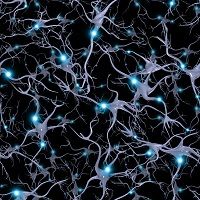Finding Unlocks Neurogenesis Mystery
Neurogenesis does not happen much in healthy brains, but it does after a stroke. In a mouse study, a Swedish team has determined how that happens. Their discovery could hold promise for regenerating neurons for many conditions. Reporting in Science , Jens Magnusson and colleagues called their finding "potentially useful for neuronal replacement strategies."

Neurogenesis does not happen much in healthy brains, but it does after a stroke.
In a mouse study, a Swedish team has determined how that happens. Their discovery could hold promise for regenerating neurons for many conditions.
Reporting in Science, Jens Magnusson and colleagues called their finding “potentially useful for neuronal replacement strategies.”
Those could including repairing damage done by trauma, disease, or even aging.
The research team, from the Lund University and the Karolinska Institutet in Sweden found that after a stroke, Notch signaling is blocked. That triggers astrocytes in the striatum and medial cortex to start producing new neurons. They found that these cells, which are interspersed between neurons, are genetically programmed to create new neurons once the suppressive effect of Notch signaling is not there.
The hope is that that if scientists could find a way to block that signaling, the path would be clear for the astrocytes to generate healthy new cells. The team was able to do that in the mice. But the researchers noted that they have not yet learned whether those new cells will function as well as the ones that are spontaneously generated after a stroke.
Two of the researchers, Zaal Kokaia, professor of experimental medical Research at Lund University, and Olle Lindvall, senior professor of neurology, earlier published research showing that stroke triggers the formation of new nerve cells from neural stem cells. The new nerve cells were found to form specialized contacts with other cells.
But the role of astrocytes in this process is a new discovery.
“This is the first time that astrocytes have been shown to have the capacity to start a process that leads to the generation of new nerve cells after a stroke,” Kokaia said in a statement released by Lund University.